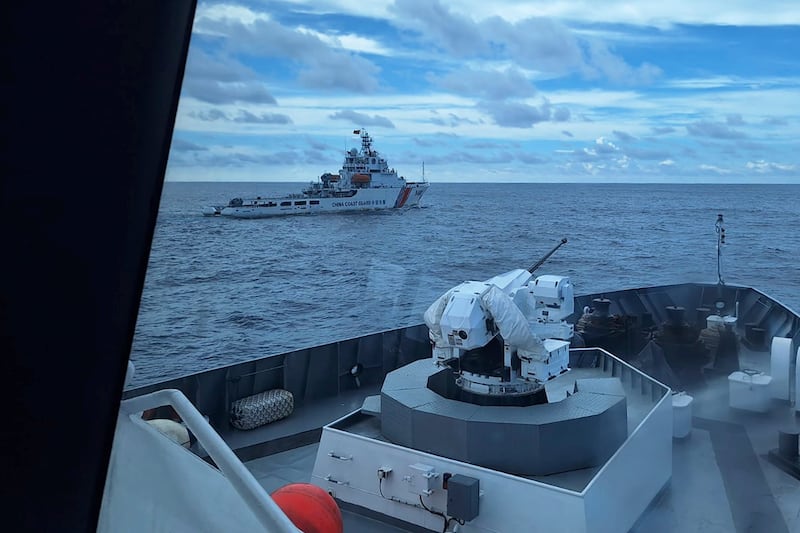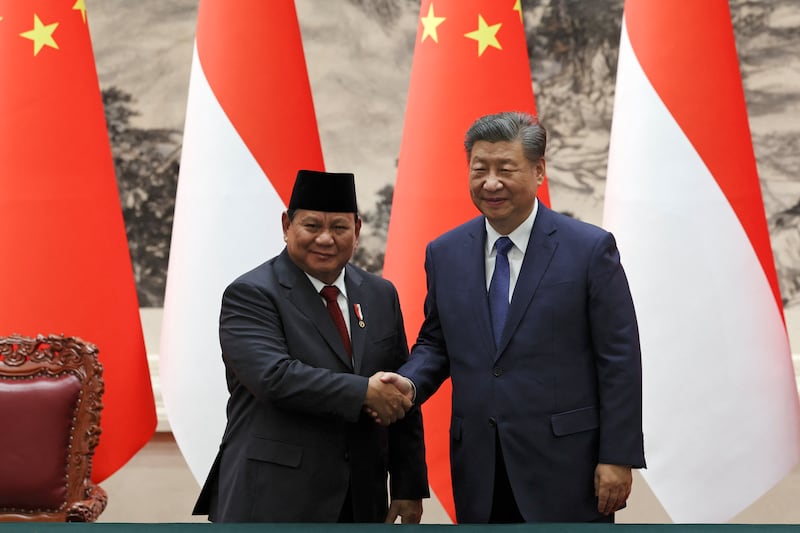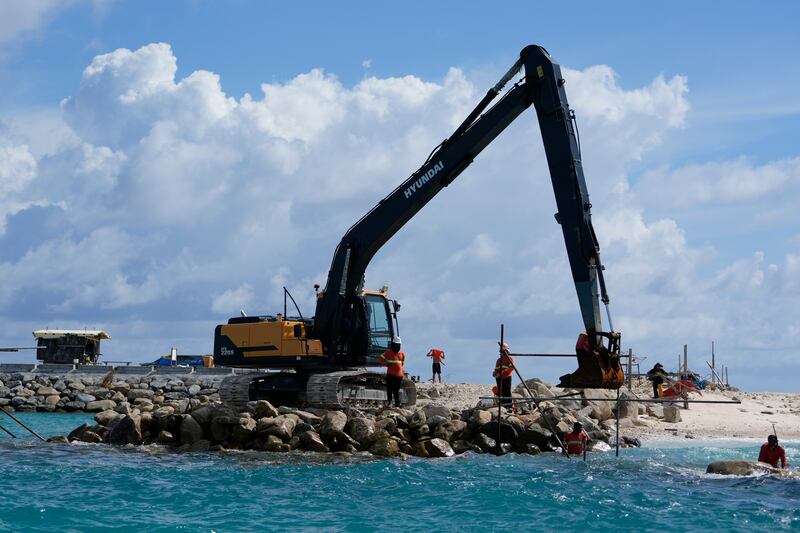In an unusually tense month in the South China Sea region, several countries with territorial disputes in the waterway asserted their claims with actions that collectively raised temperatures in Southeast Asia.
Envoys were summoned, protests lodged and missives crossed borders.
China lays claim to almost the entire South China Sea, but its claims overlap with those of Brunei, China, Indonesia, Malaysia, the Philippines, Taiwan and Vietnam.
That’s not all. There are at least five other conflicting claims involving different combinations of countries, over the region’s waters.
Five of the claimants, China, Indonesia, Malaysia, the Philippines and Vietnam, are linked to the developments of the past four or so weeks.
Still, some regional and security analysts told BenarNews they didn’t believe there would be an escalation of tensions.
Sometimes, though not often, more than one of the South China Sea territorial disputes flares up at the same time, said Orson Tan from the Institute for Indo-Pacific Affairs in Christchurch, New Zealand.
“The claims have always been there and were never dropped. What’s happening at this moment is the reaction to movements from the other parties,” Tan, a senior research fellow at the institute, told BenarNews.
“I think a similar situation happened even when the Philippines filed the arbitration case [against China in 2013].”
Here’s a look at the developments that took place in almost four weeks, starting Oct. 20, 2024:

1 - In the first week of new Indonesian President Prabowo Subianto's administration, the country's coast guard service Bakamla chased and expelled a Chinese coast guard vessel from Jakarta's waters, not once but three times the week of Oct. 20. Analysts said Prabowo was heralding his arrival by showing he is assertive when protecting Indonesia's sovereignty.
Bakamla said the Chinese vessel was “disrupting” Jakarta’s survey activities. Beijing said the area was under its jurisdiction.
2 - Curiously, a little under three weeks later, a new maritime cooperation agreement between Indonesia and China appeared to indicate an about-face by Jakarta in its stance on Beijing’s expansive claims in the South China Sea.
After Prabowo met Chinese President Xi Jinping in Beijing on Nov. 8, China released a "joint" statement saying the two countries had reached an "understanding on joint development in areas of overlapping claims."
Critics at home and abroad slammed Indonesia for the deal saying it would affect other claimant states as well, because China could pressure them citing Indonesia's recognition of its claims. Two days later, the Indonesian foreign ministry said it absolutely did not recognize China’s claims.
But the damage was done, said analysts.

3 - Meanwhile a news report revealed last week that Indonesia's neighbor Malaysia had lodged a complaint against Vietnam last month about Hanoi's expansion on a South China Sea reef both countries claim.
Reuters news agency said it was a rare exchange between the two nations, if Malaysia did indeed lodge such a protest. Analysts told BenarNews that Vietnam was at fault in this episode.
Malaysia had complained about Vietnam’s development of an airstrip on Barque Canada reef, an artificial island that Kuala Lumpur also claims, Reuters said.

4 - Amid escalating and increasingly perilous confrontations between Chinese and Philippine vessels in the South China Sea, the Philippines last week enacted two laws to declare its maritime claims in line with the United Nations Convention on the Law of the Sea (UNCLOS).
A Philippine senator said the laws enforced a 2016 arbitral ruling by the international court in The Hague. That ruling had invalidated China’s expansive claims in the waterway in a case brought by the Philippines.
Annoyed by the new laws, Beijing summoned Manila’s envoy to lodge a protest and said it had already rejected the 2016 ruling.
5 - Coincidentally or otherwise, two days later on Sunday, Beijing made an announcement that analysts said strengthened its claim on Scarborough Shoal in the South China Sea. The shoal lies in the Philippines' exclusive economic zone.
China announced the baselines of its territorial sea around the shoal, adding that they are “in accordance with international law” and that the shoal has always been part of its territory.
Now it was Manila’s turn to summon Beijing’s envoy – to protest about the new baselines – which it did on Wednesday.
6 - The Philippines’ two new maritime laws displeased Malaysia as well.
The Malaysian government on Thursday said it was protesting the laws that it contended encroach on its oil-rich state of Sabah, which borders the South China Sea.
Uncharacteristically, this was Malaysia’s second South China Sea-linked protest in two months – the first one was against Vietnam.
As of Friday, the Philippines had not responded to the announcement about the protest.
With Malaysia taking over chairmanship of the Association of Southeast Asian Nations next year, it needed to respond appropriately to fellow members Philippines and Vietnam on its infringement on areas it claims, said Tan of New Zealand’s Institute for Indo-Pacific Affairs.
“[But] Malaysia’s actions won’t adversely affect the overall situation in Southeast Asia. ASEAN countries are very used to working together as a bloc,” he said.
“This diplomatic note is for all intents a show to say that Malaysia still regards its sovereignty as indisputable.”
RELATED STORIES
[ Beijing draws baselines around shoal in Manila’s jurisdiction to fortify claimsOpens in new window ]
[ Malaysia protests new Philippine maritime laws for South China Sea encroachmentOpens in new window ]
[ Malaysia objects to Vietnam’s island building in South China Sea: media reportOpens in new window ]
[ Jakarta seeks to contain fallout from South China Sea agreement with BeijingOpens in new window ]
[ Joint exercise Sama Sama in South China Sea enters key phaseOpens in new window ]
